By C. R. S. Lyles

In 1999, thousands swarmed the Washington State Convention and Trade Center in Seattle to protest the World Trade Organization and promote the anti-globalization movement in the United States. Now, nearly twelve years later, a new spark of revolt is sweeping the streets of the Emerald City.
As of last year, a law was passed that made shipping tobacco to consumers in the state of Washington illegal. The ban, which has been lauded by lawmakers, the media, and the public, is a travesty of both free enterprise and free will, and has led multiple proponents of tobacco and all its consumers to take their fight to the halls of the state legislature in protest of the bill and its proposed accessories, HB 1246, (which bans all flavored tobacco) and SB 5016, (which bans smoking in an automobile when minors are present).
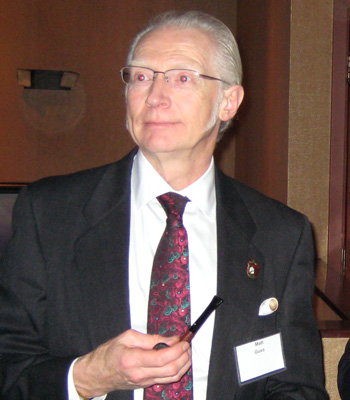
As Matt Guss, president of the Seattle Pipe Club put it, “We are not a political organization, but it becomes political when someone wants to take away the right to your pleasure.”
Mr. Guss, who testified in Olympia before the Senate committees who were called to address the issue of exempting pipe tobacco from the restriction of tobacco sales over the Internet last year, said “The agenda is to eliminate tobacco in general from the state of Washington. They won’t say that in public, but they will certainly say that in private.”
And while the ban’s call for the inaccessible storage of tobacco to youth is admirable, Mr. Guss claims that the veil is just another opportunity for the state legislature to hide behind the tired rhetoric of parental concern.
“They always claim that it’s all for the kids, but they just use this excuse to limit adults from enjoying tobacco. It’s a nanny state, and we are in the nanny-ist state in the United States.”
The sales tax on tobacco in Washington is currently 95%, but Mr. Guss has stated that the Attorney General’s office has claimed that they don’t need the taxes, and that the current bills are just a ploy to eliminate tobacco sales in the entire state.
Under the addendum up for consideration on Senate Bill 5016, the constriction that Seattle smokers are currently enduring will become even more uncomfortable.
Under this provision, “It is a traffic infraction for a person to smoke in a car with a person that is under the age of 18 years. Law enforcement may only enforce this law as a secondary infraction, which means that the driver must first be suspected of a violation of another rule of the road or local ordinance.”
This bill, if passed, would not only be the first step in eventually illegalizing tobacco in all its forms, but it also opens a door whereby law enforcement may pull over anyone they just see smoking if they can come up with a good enough reason for doing so.
Their tail lights were a little dim.
Their music was a little too loud.
The operator of the vehicle was being detained for possible suspicious activity.
Law enforcement has a nearly limitless amount of excuses in their arsenal, and should this bill (even though it carries at the end a stipulation that says “For the first six months this may only be enforced by law enforcement as a verbal warning”) be passed, it will only be a matter of time before they begin pulling them out just so that they may harass and threaten smokers with legal recourse just for enjoying a substance which is (heads up, Congress, this concerns you) STILL LEGAL.
But it is not the legality, Mr. Guss said, that’s up for debate. It’s the flavoring.
If passed, House Bill 1246 would add the addendum which “Restricts the sale of flavored tobacco products and dissolvable tobacco product.”
On the Mac Baren Tobacco Company’s website, the company states:
“When pipe smoking began to gain wide acceptance in the 1600s, tobacco manufacturers turned to ways of bringing out the best flavour in the tobacco. Essentially this meant emphasizing the best nuances of taste in the raw tobacco for the optimal enjoyment of the smoker. For centuries the tobacco masters have sought to find the perfect casing for a given mixture.”
Mr. Guss contends that this method is being exploited by the state’s legislation to create a smear campaign whereby flavored tobacco could be seen as being marketed toward children.
“They’re making it sound like they’re making chocolate and peppermint-flavored tobacco to entice children, but you don’t have to be a kid to enjoy those things.”
The truly confusing aspect of all this tumult in the Northwest is the fact that, while lawmakers, citizens, and, yes, even the media are vilifying tobacco, they are lauding the “progressive thinking” in opening up medical marijuana dispensaries.
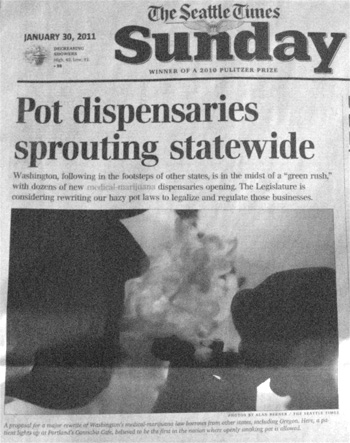 The Seattle Times (which supported the onset of tobacco illegalization with less than the standard objectivity that would designate them as a pinnacle of journalistic integrity) published a front page article on January 30th of this year in which it praised the “innovative pioneers” who were at the forefront of this shift in smoking trends and lauded the ingenuity of the new generation of “potrepreneurs”. [Article here]
The Seattle Times (which supported the onset of tobacco illegalization with less than the standard objectivity that would designate them as a pinnacle of journalistic integrity) published a front page article on January 30th of this year in which it praised the “innovative pioneers” who were at the forefront of this shift in smoking trends and lauded the ingenuity of the new generation of “potrepreneurs”. [Article here]
This same publication (it must be noted), published an article on smoking over three years ago under the title “Long desired regulation of tobacco is law”. In the article, The Seattle Times urges lawmakers “Do not stop there” and that “Tobacco survives as a lethal and legal substance, but there is no good reason for taxpayers to continue to subsidize its production. Wean this known hazard off federal welfare.”
To contextualize, note that while The Times, an independently-owned and operated paper and thus liable only to itself for the smear campaign it has been and is currently conducting on tobacco, praises the start-up businesses of medicinal marijuana dispensaries, it demands for tobacco to be “weaned off federal welfare.”
Medical marijuana is a federally-welfared substance. Its control and distribution is monitored and operated by the government. Why exactly is Seattle allowing a newspaper to quietly condone the use of an illegal substance (regardless of the fact that its being used for “medicinal purposes”) and lead the charge for banning a legal substance?
Tobacco was used for medicinal purposes for hundreds of years before the smear campaign against its use began. In fifty years, should the roles be reversed and marijuana is legalized, one has to wonder if some new medical study will emerge showing the “harmful bodily effects” of smoking pot and (if it’s still around) whether The Seattle Times may lead another smear campaign within its pages calling for its second illegalization?
Just some food for thought.
The point is, the additional bans that Seattle is pressing for against tobacco is opening a door through which all states (because state legislatures just love to jump on the bandwagon when it comes to the battle with tobacco) will eventually march through amidst a parade of ticker tape and cheering civilians who believe they have finally won the war against the evils of tobacco use.
“They make it sound like anyone who smokes is a villain,” Mr. Guss said. “In my time, smoking a pipe was a symbol of wisdom, thoughtfulness, and caring. It was the age of father-knows-best.”
But the days of Ward Cleaver are far gone, due primarily to the fact, Mr. Guss states, that “the left has been successful in demonizing tobacco. The government today feels free to poke its nose into every aspect of our lives in the name of the greater good.”
In today’s society, paternity has been replaced by the government.
“There’s an old joke,” Mr. Guss said about the issues which face tobacco smokers today,” about how you properly boil a frog. You start with cold water, because then the frog will never know its being boiled until it’s dead.”
The new laws which are up for consideration carry with them a rank of a class C felony for violators, which is punishable by a fine of approximately $5,000. Representatives and proponents of these changes to state law, such as Rep. Eileen Cody, have stated many times that their overall agenda is to “force people to quit smoking.”
“What it boils down to is us against them,” Mr. Guss stated. “And there’s more of them.”
Mr. Guss’s pipe club currently has around two hundred members which meet, in all places, on an Indian reservation.
“If it wasn’t for the Indian Reservation,” Mr. Guss said, “we’d all be in a basement somewhere or driving around in a car waiting to be arrested.”
The Seattle Pipe Club is a collection of individuals who enjoy a common, relaxing hobby which is legally allowed (for the time, anyway) to meet and share in their passion.
“Pipe smoking for us is not a way to get a nicotine fix, but a social activity where we collect pipes, talk about pipes, and smoke different kinds of tobacco,” Mr. Guss said. “And we have to be in a whole separate nation, on a reservation, to do it.”
The personal attacks by state legislation in Washington have just begun. They’ve won many battles already, and the Attorney General’s office has already said that the state no longer requires the tax revenue it gains from the sale of tobacco. The sale of tobacco over the Internet, which eliminated the sales tax altogether, has already brought a heady blow against the current smokers of Washington, and should either of the current bills pass, the rights of smokers will become even more restricted.
“The Attorney General’s office is prepared to eliminate all tobacco from the state of Washington,” Mr. Guss said.
And with the support that it’s gaining in this venture, it seems that it’s only a matter of time before this goal becomes a reality.
Therefore, smokers, pick up your picket signs and protest the misguided attempts by the Washington legislature to control the Puget Sound, because the second Battle in Seattle has already begun, and if they should win, you can bet your matches they’ll be on the warpath and ready to take the traveling crusade to your town next.

Carter R. Lyles is a student at the University of Central Florida in Orlando, FL and at the University of Florida in Gainesville. He is a journalism/psychology major, and in addition to his work at Pipes Magazine, he has contributed articles to The Alligator, Thursday Night Magazine, and The Fine Print. |







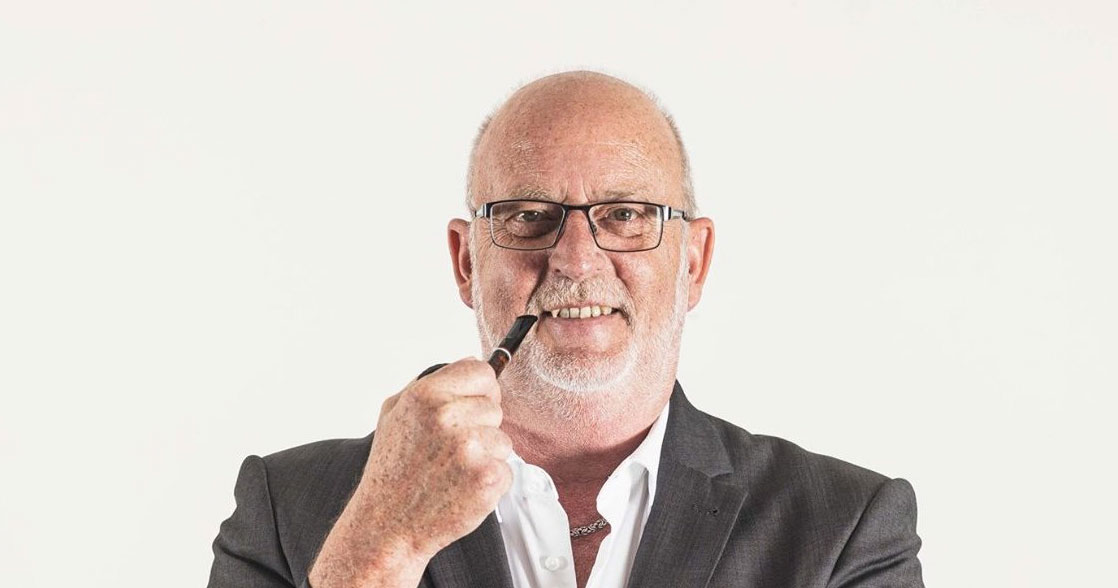
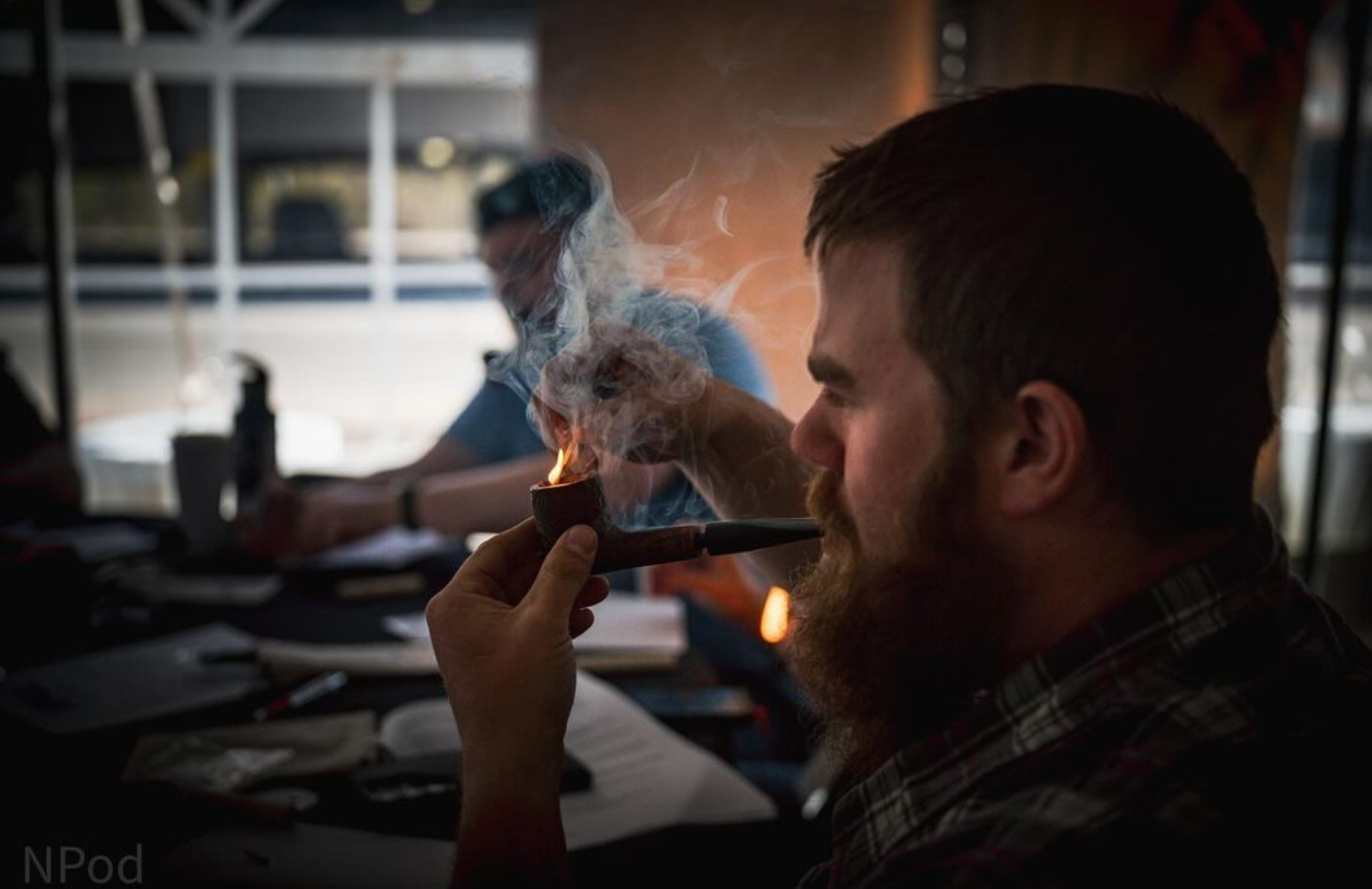
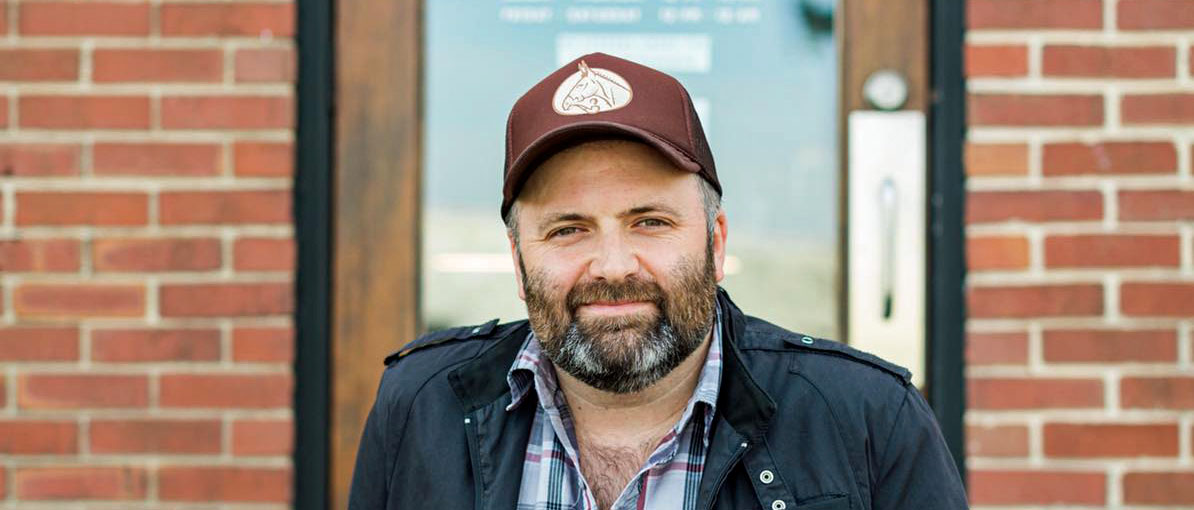
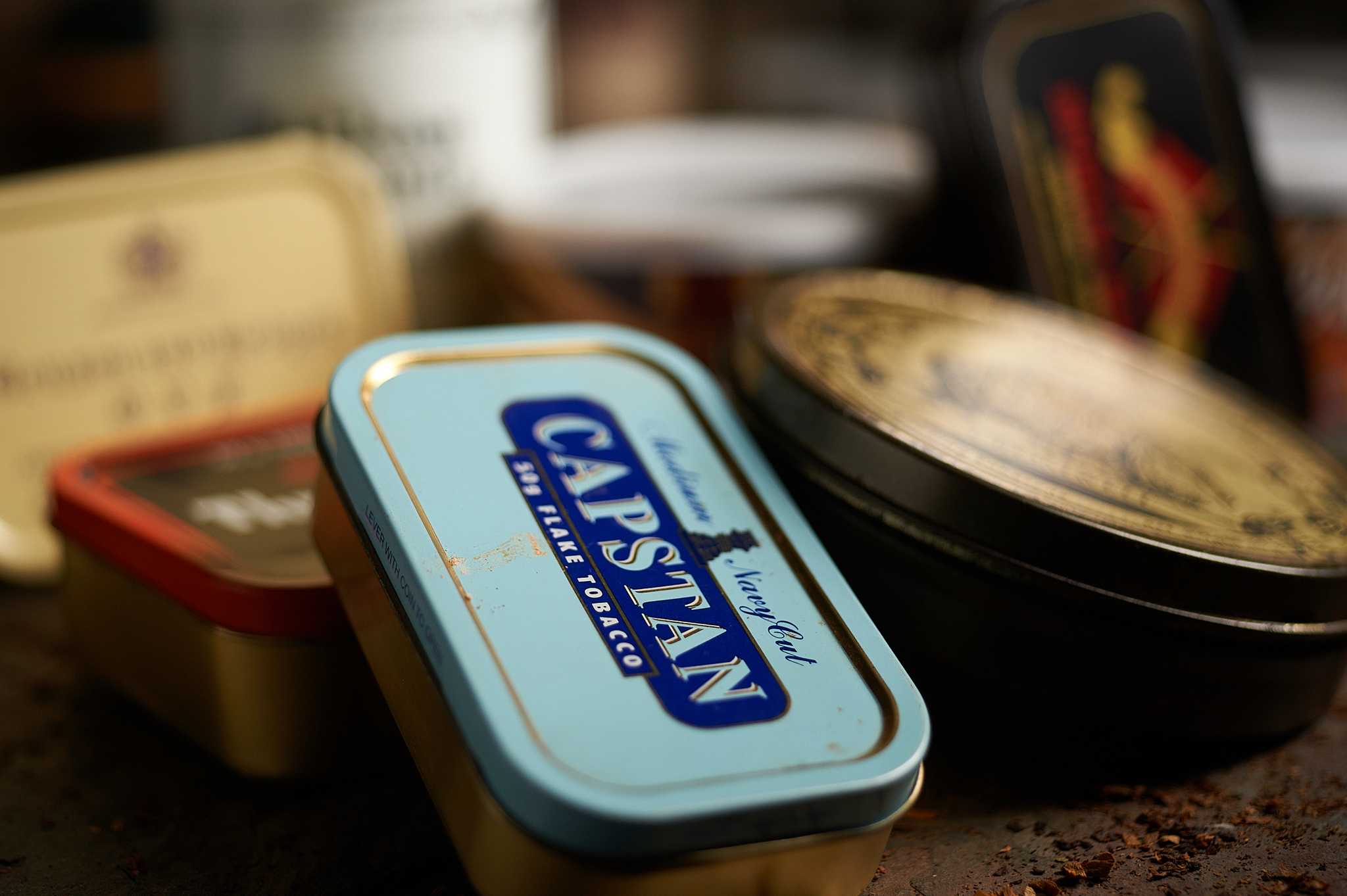
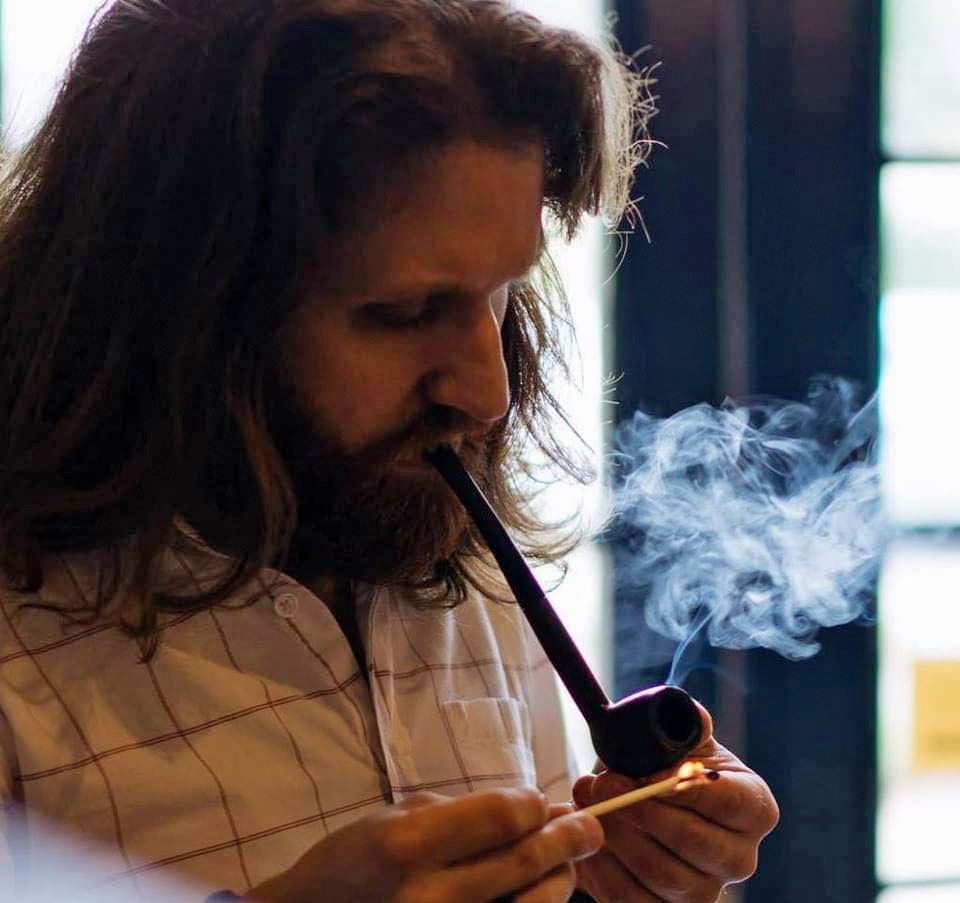
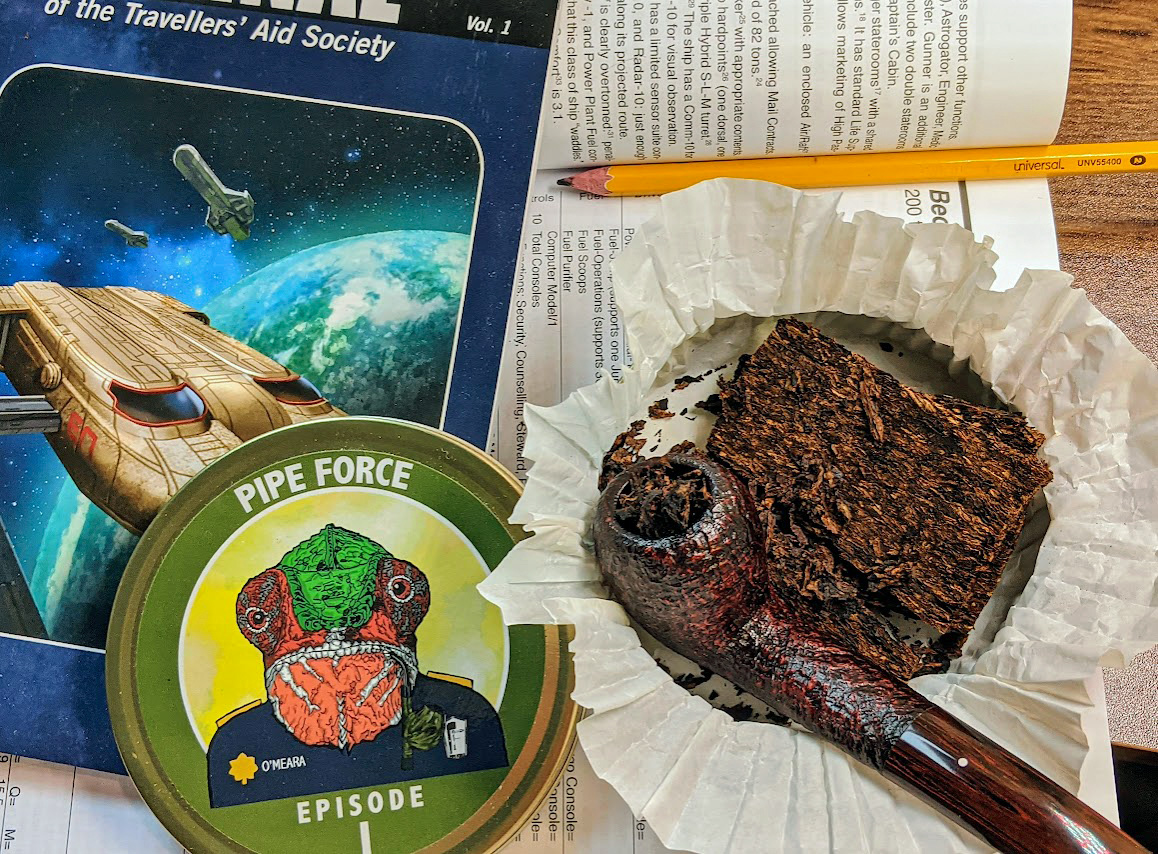





HB 1246 is “for the children”. It proposes outlawing any and all flavored tobaccos.
Even though it is illegal for minors to purchase tobacco products, the Washington legislature says they still do.
So, instead of enforcing laws already on the books that address the issue of youth tobacco use, they prefer to create additional laws that infringe on the rights of adults from purchasing a legal product by making it illegal.
There used to be at least 5 Tinderbox Stores in Washington state.
Now there is only one left.
That’s just what we need. Legislation that not only infringes on personal rights and freedoms, but that also closes businesses.
The entire legislature should be fired. We need a revolution like they are having in Egypt.
Funny how the most of the same crowd that wants to ban all tobacco use is the same crowd that wants to legalize marijuana.
Just wait till they label tobacco use in front of children as child abuse, you can see that coming.
I have four children and the older two school age ones have come home from school asking questions about smoking and my pipe. I make sure that I inform them that while everything is bad in excess, all things in life should be enjoyed in moderation. I tell them that many things we love may, statistically, shorten our lives and we must make informed decisions as adults to balance life’s enjoyment with longevity. What is the difference between tobacco use and someone who enjoys parachuting, rock climbing or extreme sports? All have risks, but one is evil and the other three looked as physical fitness.
Sounds a whole lot like the legislators in the state of Washington have taken a page directly out of the book of the National Socialist Party. In the early thirties they were also doing similar things for the good of the puublic in Germany.
Where oh where is the petition that I can sign voicing my dissatisfaction with this kind of legislation…
I am afraid I have lived long enough to see the America that my grandfather, my father, and myself served in the armed forces
because we believed in the freedoms for which we trulu felt were sacred. I wish now I could take it back because the cost was extremely
high and now I see it was not worth it. My country is killing itself from within just as it was predicted. Wake up americans –
we are at the point where we will start looking like Egypt because even at my age I WILL fight again for the same reason my
family always has, As for the state of Washington – Goodbye and good luck because you are going to need it, I am starting today to ask the smoking world to stay away from Washington.
John Manytrees Herring
Kevin remember where I’m at. The tobacconist I wanted to take you to last time you were in SF has been around for 188 years and survived a LOT of crap. Imagine having a piece of San Frnacisco’s history shut down due to stupid shit.
Yet they did open up more dispensaries in Oakland. And the homeless in SF are growing.
This is ridiculous. Tell me, would your kids mimic you and pick up your pipe at a young age? Or would there be education and freedom of choice given. If I know you, I’m fairly certain I know the answer.
This is just another example of the Nanny State. think I’ll go get my pipe.
This is crazy, next step is the government telling people what I can and can’t eat.
Hey look at that ANOTHER nanny law from the state of Washington. Congratulations! I won’t visit your state. I wouldn’t have smoked while I was there, but since you seem to think that you know what’s best for me better than I do, I am now afraid of the government in WA. Way to become Orwell’s 1984! Big Brother is watching you in the state of Washington.
-J
Hitler was actually a smoker in the thirties;he gave it up and therefore thought everyone should be the”same”….All fascist thinking follows this logic to actually be fascist.
As a ps, Kevin, I think you may still have the impetus to have that revolution. In the UK we have our rulings from unelected Brussels politicians(and I mean unelected anywhere in Europe),plus our countless laws against us by our now ex prime minister;now we have an unelected prime minister in power(a coalition ha ha)
Theres a feeling of being crushed here.Mike
When our forefathers came here to settle this country it was in order to escape the weenies that wanted to make restrictive laws. After America was settled and safe, the people with a need for control came. I say, if you want to make more restrictive laws then go back to Europe! In Connecticut they took people’s property under an eminent domain law. They tried to do the same here in Wilmington, DE. but we fought for tighter laws. Five years ago, the governor got a law passed that there would be no smoking in public restaurants. I think that the restaurant owner should be able to decide whether their business allows smoking or not. They used to have a smoking section and I was never bothered by smoke while I was eating. Then people say, I like to eat there and I won’t if there is smoking. I say, THEN DON’T!!! I think that the state governments are overstepping their legal boundaries. There needs to be a word that is used when the government is out of bounds (like dictator). As Kevin said, If the law prohibits minors from purchasing tobacco products then the point is mute as to whether a tobacco is flavored or not. All you weenies who want to make more restrictive laws…go back to Europe. The United States is for the free and the brave. What happiness will we have when there are none left to pursue?
GAROT, We have a ‘site’ “signing the petition against the uk smoking ban” ….Do you have similiar, I wonder?
Good luck USA in any endeavour. Mike
Unfortunately, I live in Washington state and pipe tobacco is becoming increasingly difficult to find. I don’t live near Tacoma (where Tinderbox is located) and there are no pipe clubs in my area. Any tobacco shops nearby have an extremely limited supply of pipe tobacco. Most shops I visit are unwilling to have tinned tobacco in shop due to costs. The restriction of having tobacco shipped to you is frustrating beyond belief. It is almost worth risking a felony for the liberties that others enjoy. For every tobacco shop there are 4 or more head shops. In fact, some of the head shops have started carrying a very small supply of tinned tobacco at high prices. I feel extremely out of place going to a head shop to look for tinned tobacco. You could talk about mary jane all day with one of the employees but you couldn’t have a minute long conversation with them about pipe tobacco. If I tell people that I smoke pipes they automatically assume I am talking about glass instead of briar. I know of a few petitions against these obsurd laws but they have all been shot down so far. I really wish there was something that could be done against this but the options are running thin. Any ideas?
We are witnessing the tyranny of the masses… The anti-smoking movement
has been around as long as tobacco was brought from the Americas. Just about
the time that it looks like the antis are going to shut everything down, a
major event like war or financial meltdown has happened and people have
sought tobacco for personal use. It seems that the government has learned
nothing from the prohibition period, where the puritanical views of those in
power sought to abolish alcohol…, while inadvertently funding organized crime, since people didn’t agree with the laws. History does repeat itself. Many a successful politician has come from a family that made riches from guns, alcohol and tobacco. Do you think that this will change?
There are still some great pipe and tobacco shops in Washington: in Spokane, Bellingham, Tacoma among other places. But their time may be numbered. It will be hard to find a younger generation to take up that trade give the political climate.
I save up my pennies, so that on every trip to those cities, or trips to California and British Columbia, I can stock up on plenty of pipe tobacco to take home.
And although most pipe smoking is happening in the home these days, you will still see brothers and sisters of the briar lighting up in city parks, or even in the carpool line at the kids’ school. At least for now.
Jay and the gang, I have written a note to two tobacco companies to see if they can suggest ways to get around the restrictive laws in Washington state. Let’s see what they come up with. Let’s give them a few days and I’ll get back to y’all. (If a body wants tobaccey they ought ta be able ta get tabaccey!!)
Now you’ve got me thinking!!! If I were faced with this type of limitation I would go to my local drug store and ask “my local pharmasist” if he/she would allwo shipments of tobacco to be sent to their location for a small fee (I’m thinking, like, a buck or two). The drugstore should have the usual “drug store brands” of tobacco and therefore they should be able to accept shipments of tobacco for resale to the public. You may want to ask your local drugstore while we’re waiting to see what the tobacco companies suggest. Ya think??!!
As a small tobacco pipe business owner in Washington state, and a member of the Seattle Pipe club I would also like to state my opinion. This opinion comes after an hour long smoke of my Beloved Dunhill Nightcap (which is quickly diminishing). Briar enjoyed: Fireside WDC Jumbo.
It has been but a short year since I have been drug free after a 14 year battle. By drug I mean marijuana and above. God has been good to me and showed me the way to a more respectable and enjoyable weed: Nicotiana Tabacum, which has turned long, dreary evenings into robust discussion times with friends and fantastic reads of good books. My briar collection soared from one to nearly 300 within a matter of months, which led to a business venture as well as a few very interesting bands of brothers (I have yet to enjoy the presence of the SPC, yet support them monetarily…)
I must agree with you gentlemen, the rules are not playing to our favor here in the Evergreen state, nor do they look like they shall in the future. What can be done? Is there someone to blame but ourselves? Can we really influence those who are ambitious for their own selfish gain and have more money than us by writing letters to them which most likely will end up in a fancy paper shredder in Olympia? Acting up rebeliously sounds delightful to my ears, yet we have no right to do so. As much as I love my pipes, I do not love to support Johnny Laws salary anymore than I already do. We can all agree on the fact that the men and women in office seem to be part beast part human part clown and there are many of them, and not so many of us (ex: a mere 200 in the SPC).
Its times like this that our only option is to raise our eyes up to the sky during the next sunset herf, and as the smoke rises – so should our prayers. Only God can stop the foolishness. Powerwise we might be inferior to them, yet they are inferior to Him.
I bid you well kind sirs, with all due respect.
Just ridiculous and another example of Politicians attempting to make policy with no regard for the wishes of their constituents..
It’s a sad and absurd time when we are so continually bombarded with “for our own good”…yet the things that really would be for our own good–jobs, healthcare, an end to war, education–are all flushed down the drain.
It’s the flavoring, for the children? Thats insane, this is nothing more than big health care vs big tobacco and a minority of “do good” people who think they know what is best for the public at large. Fact: long term use of tobacco products CAN cause health problems, but so can long term use of alcohol; caffeine and fried foods but no one is trying to push for banning these products. The problem is not the flavoring, marketing or the items tobacco companies used to give away, it is the lack of enforcement at the state level that is a problem. In my state, if a retailer sells/provides tobacco products to a minor the state imposes a fine of up to $1000.00, this is rarely enforced. Speaking from 15 years of law enforcement experience (3 in alcohol & tobacco enforcement) I’ll say this; I believe the state should look at enforcement options such as suspending tobacco sales permits, revolking permits for repeat offenders, imposing fines on the clerk that made the sale etc, (this IS done with illegal alcohol sales). “Law enforcement may pull over anyone they just see smoking if they can come up with a good enough reason for doing so”. I have to take exception at this statement, police officers are required by federal laws to develop probable cause that an individual is actually committing a crime before they can detain them for investative purposes, the 14th amendment states “No State shall make or enforce any law which shall abridge the privileges or immunities of citizens of the United States; nor shall any State deprive any person of life, liberty, or property, without due process of law”, this is known as illegal search & seizure. If a civil rights violation such as this occurs, the arresting officer, the agency he works for, and anyone who was supervised or trained him can be held liable. So, trust me, an EXPIRENCED & SMART officer is very careful treading in these waters, so at best, it will be a weak an ineffective law because officers will be reluctant to inforce it. The government needs to realize they are looking at the wrong tactics if curtailing underage smoking is what they are REALLY trying to accomplish.
I want to be very clear here — this is not hyperbole, this is not sensationalism, — The government making these actions is not different than the iron fist of the Roman Catholic or the Anglican churches that were so responsible for this country’s successful colonization (ironically, the sale of tobacco was also responsible for that)– and every dictator, tyrant and flat-out despot both got to power, and used their power by saying the same tired-ass thing over and over and over “It’s for your own good.”
The most evil man in the world is the one that believes his actions are for the greater good, because then he has no conscience to even slow him down.
Well said, Yoru,…and theres plenty of those people around. As the population grows here the intolerance grows…moaning about everything. Kids cant skateboard then they berate kids for staying in and no longer playing outdoors. Not so long ago these anti’s would have recieved a good punch on the nose and life would have gone on…Mike
Igot this note back from R.J. Reynolds Tobacco. They were nice enouh to check into this. Read this. Hope this is a help. Dear Alan,
I’m writing in response to your question about recent changes in the law that affect shipment of tobacco products.
Legislation was enacted in 2010 to prevent tobacco products from being shipped via US mail. My understanding is that UPS or other carriers may still be used. If you order pipe tobacco, you may want to check with the retailer to inquire how they handle shipping tobacco products.
I hope this information is helpful.
Ann
Customer Care Team
I’m pretty much in agreement with all the sentiments expressed here; but what Fred said about the tyranny of the masses resonates with me more than any other observation. It was some Greek dude, Aristotle or Plato I think, who equated democracy with mob-ocracy. The control freak who can garner the most votes rules.
I need an explanation about how this law works. It’s illegal to send tobacco to Washington? Who is going to enforce that law? Is some state trooper in Washington going to come all the way across the country to serve me with extradition papers? Mailing a few tins of tobacco is forbidden, but I can truck-in a ton? I don’t get it. Who checks the mail? How can they stop me from mailing anything — especially without a return address on the box.
The stupidity of these WAKOS will soon come to an end. The thought of pipe tobacco being a \gateway drug\ as these WAKOS think shows how much common sense is left..NONE. I agree, this is like an Iron Fist telling people what to do and think…i’ll keep lighting up my pipe. Sounds like an opportunity to open up a black market…
It’s time to repeal all the anti tobacco laws that idiot McKenna his co-sponsors and of all people Her Highness Gov. G. of Washington State, has sanctioned against the good willed patriots who have fought for this Nations freedom. The unlawful passage of the SCHIP, PACT,(on the national level) and house bill 1249, Senate bill 5340 by the 2009 regular session of the 61st legislature by the state of WA, criminalizes our constitutional rights as free men.
How much more will we stand for as our inalienable rights are stripped from us and our fellow Americans? Who will stand up, band together to challenge these false laws and oust these foolish self serving politicians? In my grandfather’s day, they would have been tarred, feathered and run out on a rail.